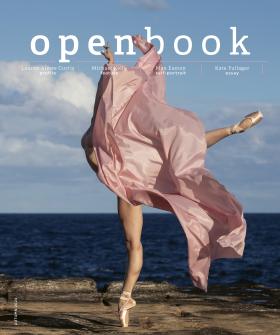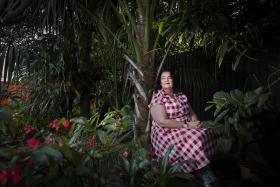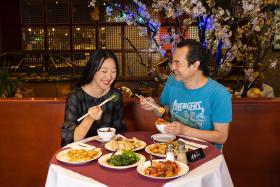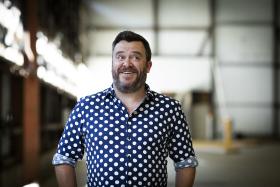Growing up in southwest Sydney I was used to a lot of things being named after Gough Whitlam. The man’s name was everywhere. My under-11s cricket team played at Whitlam Park in Busby. I swam at the Whitlam Leisure Centre in Liverpool. And I spent many hours at the EG Whitlam Library in Cabramatta.
A grey concrete building sitting a few hundred metres from the Cabramatta railway station, the library was my retreat during high school. We lived in the suburb of Bonnyrigg Heights. As a student at Hurlstone Agricultural High School, my daily commute involved getting a bus or a lift to Cabramatta station, where I’d catch the train to Glenfield, four stations away. On the way back home, two or three days during the week I’d stop at the library for a few hours after school.
Entering the EG Whitlam Library, I would walk past the reception area and wind round to the cavernous heart of the library. Most visits would involve getting started at the monstrous and unwieldy IBMs at the stand-up computer terminals. I always enjoyed the feeling of getting started, the sense of resolve and purpose. It might now sound odd to generations accustomed to finding answers by typing into Google, but back then your best shot was to begin with a search in the library catalogue.
It was the mid-1990s. Cabramatta was still known as a centre of Sydney’s heroin trade; drug deals and junkies were commonly encountered on the suburb’s streets. But you wouldn’t have known it, inside the library. It was a sanctuary for high school kids from the area. Not that the Whitlam Library was fancy. It mightn’t have been the best stocked or resourced place, but the library still felt like my own secret intellectual armoury.
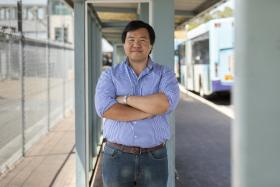
It must have been in Year 8 that I discovered my first book on psychology. I can’t remember the title, but I can still recall the lessons about visualising what you wanted to do, and about the power of affirmations in focusing the mind. In Year 9, as an enthusiastic debater, I remember borrowing books on public speaking, even if I struggled to put into good effect their advice on learning to speak extemporaneously instead of relying on notes.
Around that time, in 1996–1997, I began searching for answers about multiculturalism. Pauline Hanson had just announced herself on the national stage with her declaration that Australia was being ‘swamped by Asians’. I remember typing the word ‘multiculturalism’ into the Whitlam Library catalogue.
One result that came up was Understanding Multiculturalism and Australian Identity, written by then federal Labor politician Andrew Theophanous. The book introduced me to ideas about social justice and equity, and the political philosophy of John Rawls. An American thinker, Rawls was best known for his theory of justice — in particular, his metaphor of the ‘veil of ignorance’. Imagine, Rawls wrote, if you were to construct the rules of society without knowing your particular position in it: without knowing your sex, your race, your class, your upbringing, your physical ability. Wouldn’t you want to ensure the rules in that society would protect the most vulnerable, just in case you weren’t in a position of advantage?
My visits to Whitlam grew more frequent in Years 11 and 12 once I began concentrating on the HSC. I was on a mission to get the marks needed to be admitted to a Combined Law degree at the University of Sydney. That called for going above and beyond. And there was only so much that Cliff’s Notes or the study aids you’d find at Dymocks could provide: you needed some original research.
I struck gold when in a wander through the reference section upstairs in the library I came across a pristine hardback volume of AC Bradley’s Shakespearean Tragedy. Bradley’s lectures were a revelation: ‘The centre of the tragedy, therefore, may be said with equal truth to lie in action issuing from character, or in character issuing in action.’ This discovery lent me the ammunition I needed to attack those exam questions on Othello and Hamlet for 2-Unit Related English.
It is always tempting to impose a certain order on one’s past. It would be easy to say that my high school encounter with political philosophy and multiculturalism presaged my own work as a political theorist in the years to come. Or to think it was more than just a minor coincidence that I would end up pursuing study at Balliol College, Oxford, which happened to be AC Bradley’s old college.
Then again, experiences can plant a seed without you even knowing. And that, I would say, is the hidden power of your humble suburban library.
Tim Soutphommasane is a professor and political theorist at the University of Sydney and a former Race Discrimination Commissioner. His most recent book is On Hate, published by Hachette.
This story appears in Openbook autumn 2022.

